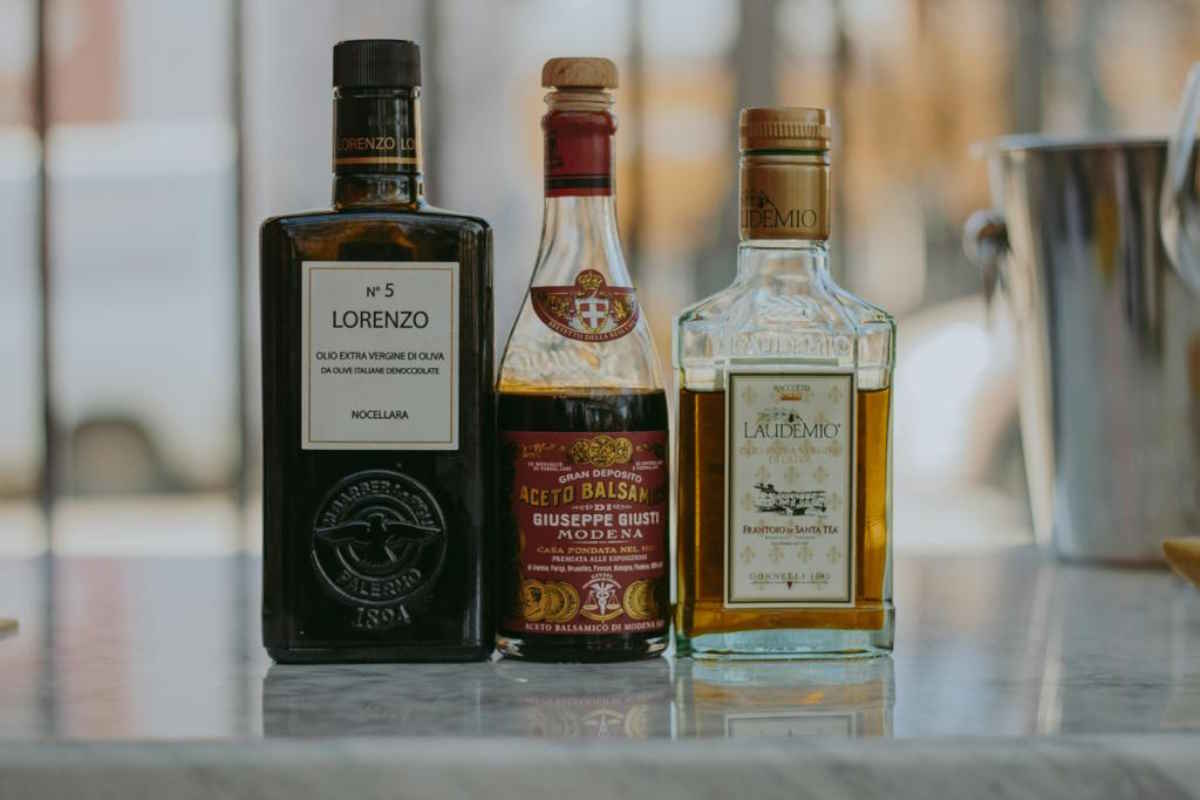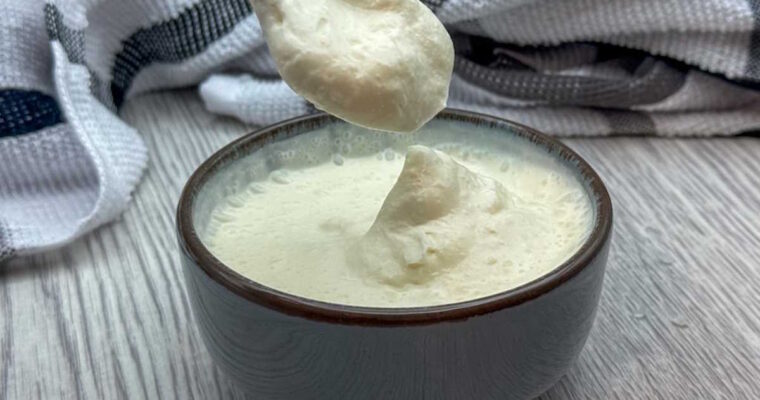Why is it always the seemingly simple things that stop you in your tracks when you are grocery shopping on a vegan diet? We know that the tub of whipping cream is vegan because it clearly says “plant-based coconut whipping cream” across the label. We also do not doubt that the “meat-free” sandwich slices don’t contain meat. But condiments, salad dressings, alcoholic drinks, and types of vinegar. These are the foods that cause us to pause and think, “Are these vegan products?” or “Surely this can’t contain animal-derived ingredients?”.
Never forget that we’re here to support your dietary choice, and most importantly we’re here to make sure that living a vegan lifestyle is as easy as possible. So we are writing a series of content that aren’t recipes but are guides for you, advising on the everyday products that are, or we’re staples in your kitchen cupboards. Hopefully, these posts will decipher the ingredient labels of some of these food products and give you the confidence to understand what you can take from the shopping store’s shelves to your own.
This time we are going to discuss an Italian classic: balsamic vinegar. Whether you’re dropping it into olive oil and soaking it up with some fresh ciabatta bread, or enjoying its distinct flavor on some leafy greens, it’s undeniably a really popular flavour that’s widely used in cooking the world over.
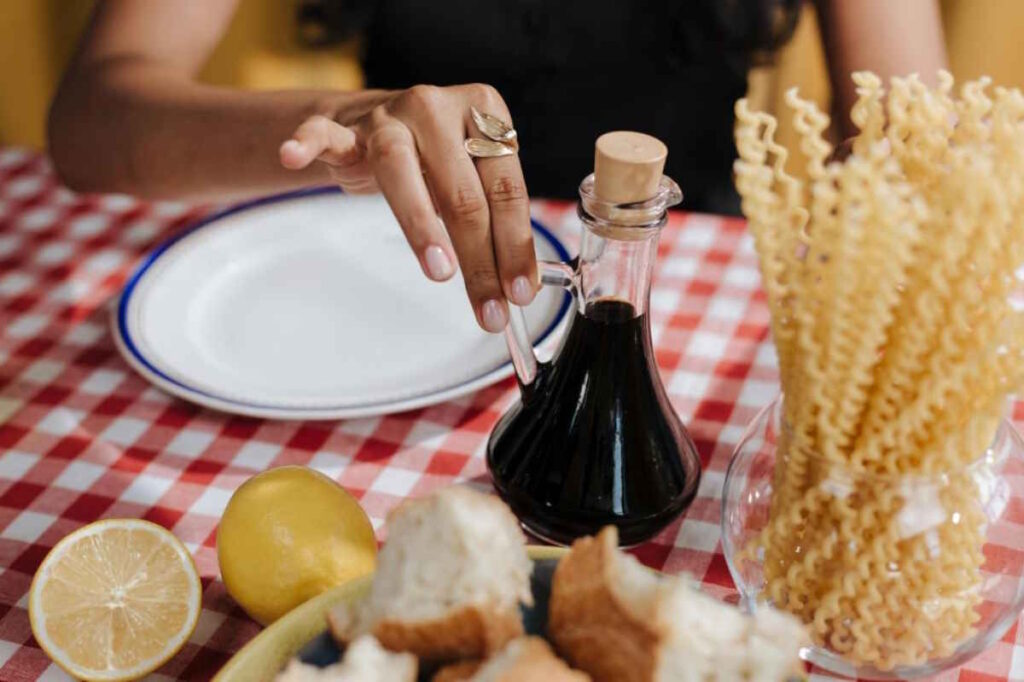
Much like champagne, truly traditional balsamic vinegar is only produced in a specific part of the world; two cities in northern Italy called Modeno and Reggio Emilia. These true balsamic vinegar types are made from white grapes, which are pressed whole, still including the seeds and stalks. Afterwards, the pressed grapes are cooked over a naked flame until significantly reduced down to a syrup-like consistency, to the point at which they are ready for the fermentation process. The name given to the simmered down pressed grapes is ‘mosto cotto’. The fermentation process takes several weeks, but after this period of waiting the fermented grapes are ready to begin the next stage of the production process.
It is now that the pressed and fermented grapes are transferred to a series of wooden barrels, being moved from one to another over many years. Each different barrel adds its unique flavor to the complex array that is building in the balsamic vinegar as it undergoes the ageing process. These traditional methods of making genuine organic balsamic vinegar do not happen overnight though. In fact can take up to 25 years for a single batch of fermented grapes to be poured into a bottle and certified as authentic Italian balsamic vinegar.
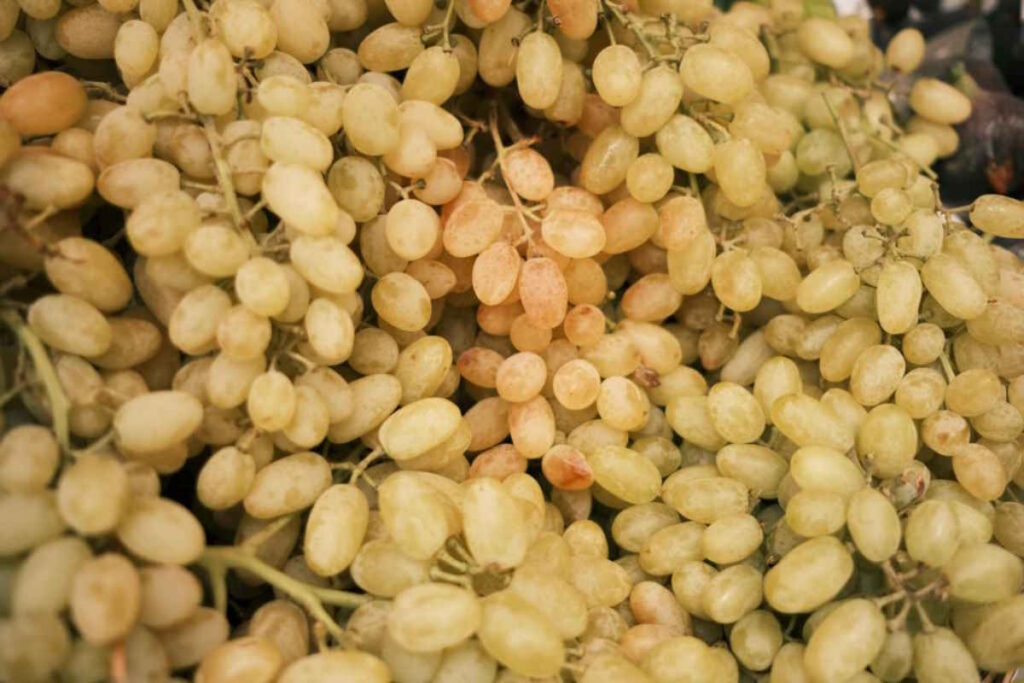
It is for this reason that if you’ve recently just popped into your local grocery store and purchased one of the many store-bought varieties of balsamic vinegar, we’re sorry to say that it probably wasn’t the real deal. For a 12-year-old bottle of balsamic vinegar you should expect to pay around £50.00, and at least double that if you decide to treat yourself to a 25-year-old bottle. Modern balsamic vinegar has strayed from the age-old processes of the traditional kind, and it often contains several additional ingredients that you simply would not find in tradizionale vinegar.
So the key question that we’ve been working towards is: “Is balsamic vinegar vegan?”. The answer is a simple one: “Yes, traditional balsamic vinegar is vegan balsamic vinegar”. And that’s because it’s made entirely of grapes: grape seeds, stalks, in fact, parts of the sweet white grapes, pressed into the famous mosto cotto syrup. As we mentioned earlier, it is this syrup that is fermented and aged into the rich balsamic vinegar that the world adores. Best of all it can be enjoyed by those following a plant-based diet.
The follow-up question then is, “Are there any of the different types of balsamic vinegar which contain non-vegan ingredients?”. Yes, some modern versions of balsamic vinegar contain animal products. While the main ingredients are typically grape derivatives (such as grape musts and white wine vinegar), many cheap off-the-shelf options contain caramel or caramel coloring. These are used to attain a darker, and more “caramel color” that’s more in keeping with the traditional kinds of balsamic vinegar, or caramel can be used as a thickening agent.
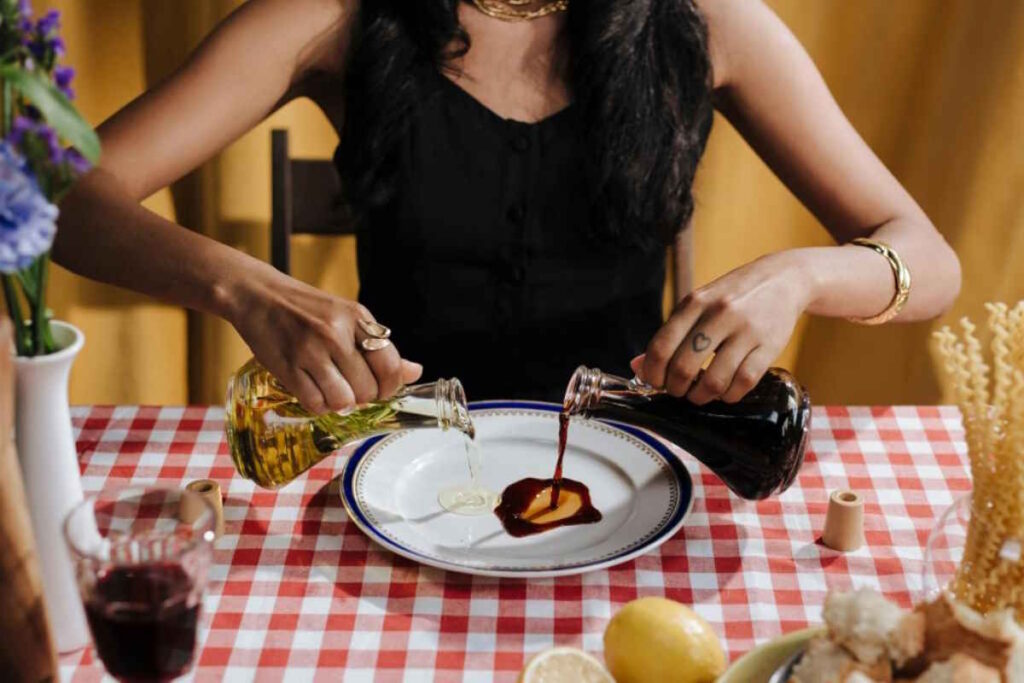
The issue with this is that these added sugars may or may not be vegan. Caramel can easily contain dairy or milk products, in fact, it normally does. If the manufacturer hasn’t used actual caramel in their production methods though, they may very well have used caramel coloring instead. The primary ingredient of which is sugar, which again can easily be vegan, however, it could also easily be sugar processed through bone black. Which unfortunately would mean that charred animal bones have been used in the making of your chosen balsamic vinegar.
It is therefore entirely possible that any number of non-vegan additives has made its way onto the list of balsamic vinegar ingredients on these cheaper more readily available alternatives. For that reason, if the bottle’s label does not specifically state that it is a vegan product, then you’re probably best to steer clear. But understandably most of us are buying more commercial balsamic vinegar brands. They are undeniably a cheaper alternative, and so if you’re uncertain about any of the ingredients of any one brand, you can always reach out to them and ask if their balsamic vinegar contains non-vegan products.
So of the main types of balsamic vinegars are there any that are made using animal-derived products other than caramel or caramel coloring? The answer to this question is also yes, as we mentioned earlier there can be a desire to include a thickening agent in the vinegar. An ingredient called xanthan gum can be used in this case, but much like caramel it can be a vegan product, or it could be derived from dairy. In which case if the latter was true then you as a cow-loving vegan would have to put that particular bottle of balsamic vinegar back onto the shelf. There is of course always the chance that the manufacturer of the balsamic dressing that you’ve picked up used guar gum instead of xanthan gum. This would be a win for you as it’s made from the seeds of the guar plant and is therefore most definitely a plant-based thickener.
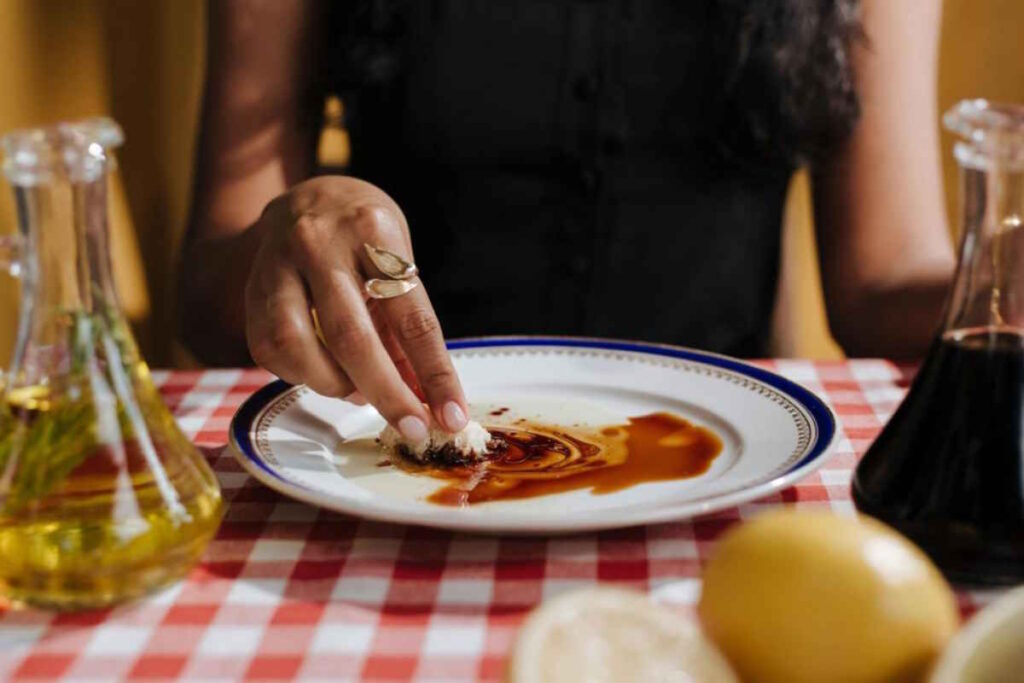
To bring all of this information into some sort of summary, there are the traditional varieties of balsamic vinegar that very much respect the rich history and great respect that Italy’s culinary landscape deserves. While these excellent certified balsamic vinegar are vegan (due to being produced from a single ingredient), they can be an expensive way to cook with this great Italian flavor. There are plenty of store-bought alternatives, which are not graded, and made from outside of the listed regions of Italy, but they are a more affordable addition to the weekly shopping list. It is when reading these bottles that you need to be more attentive to the labels listed ingredients. If you are uncertain and the packaging does not clearly state that it is a vegan balsamic vinegar, then it’s entirely possible for example it’s because the caramel used to improve the color of the vinegar contained milk.
We fully encourage you to keep using balsamic vinegar in your plant-based dishes. Just perhaps treat yourself to a bottle of genuine, traditional balsamic vinegar. A dash of it in our marinara sauce wouldn’t be bad at all, nor would a smattering of it over a fresh bed of rocket lettuce served with a portion of our easy vegan lasagne. You could even have a go at making your very own balsamic glaze or vinaigrette. Regardless, don’t overlook this amazing condiment, we always keep a bottle to hand.

